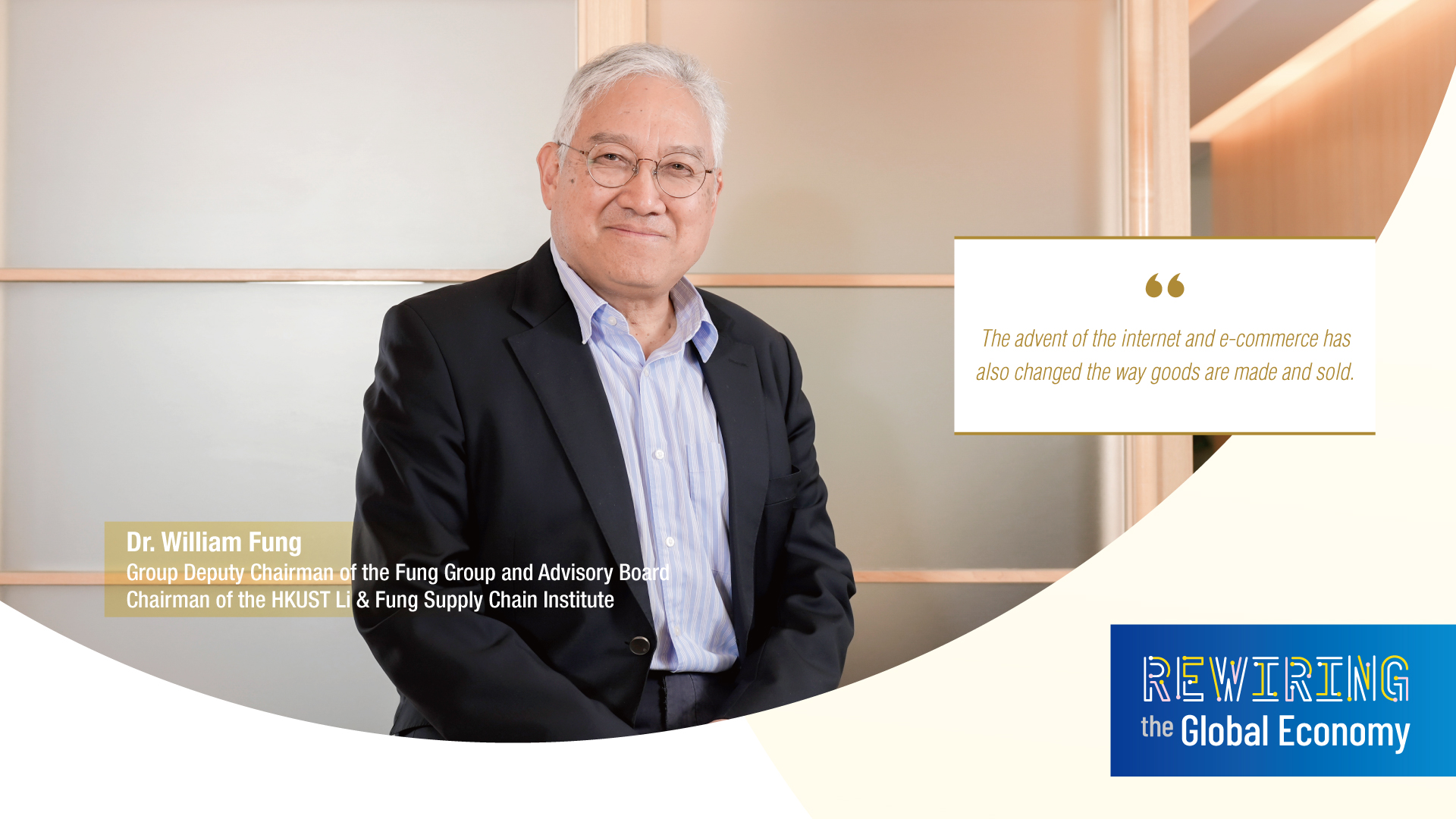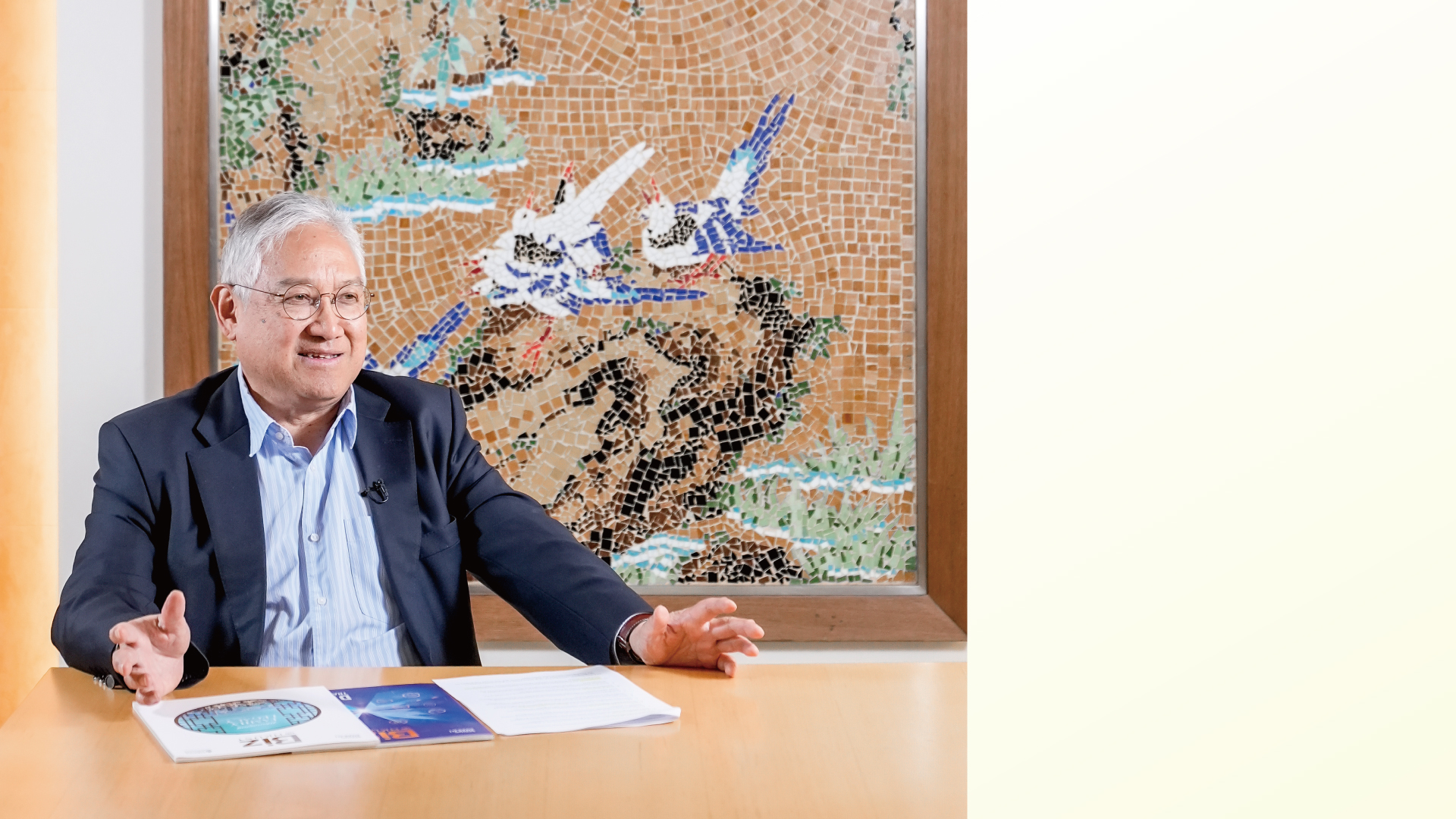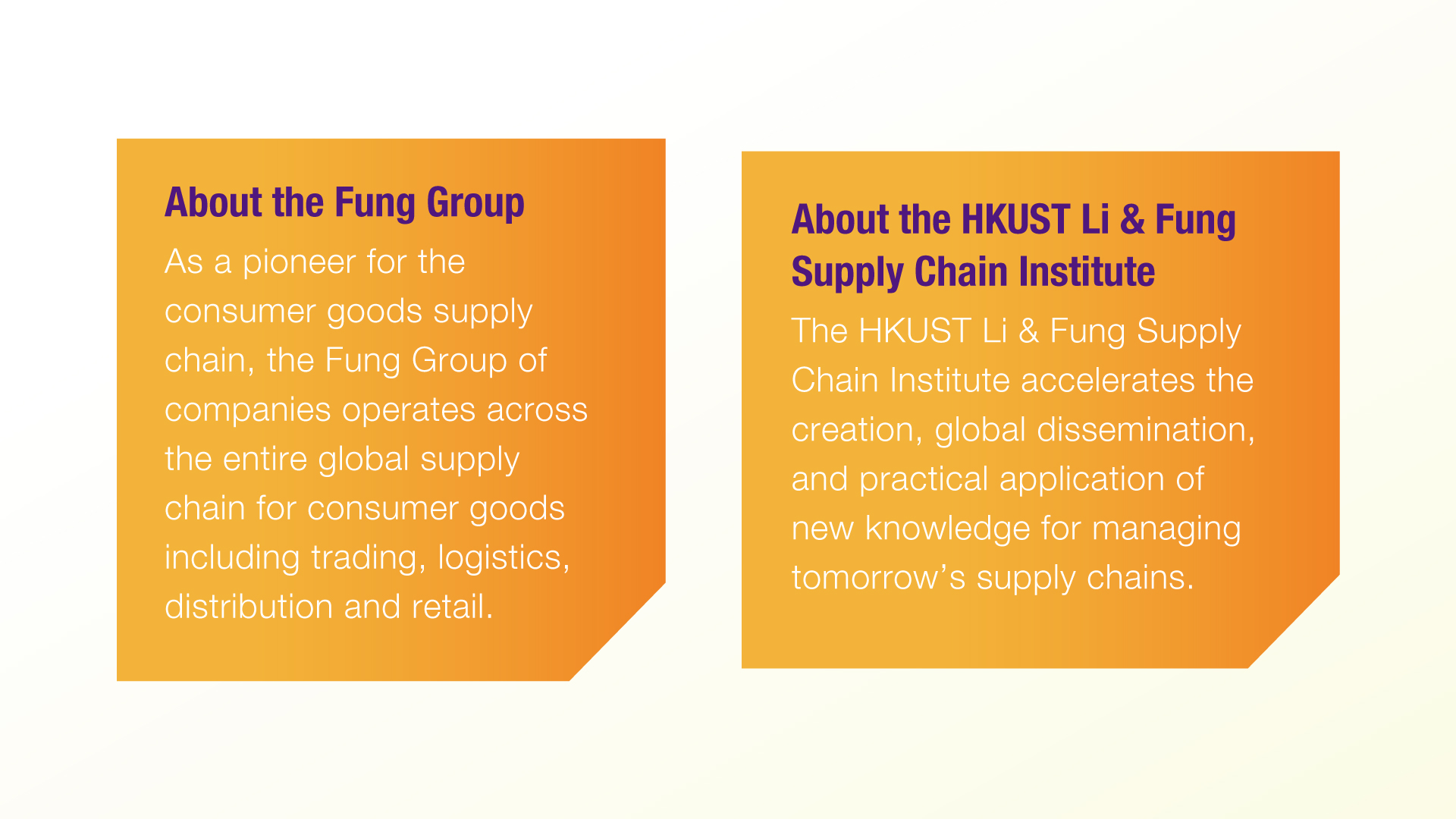
A major reset is upon us, but according to Dr. William FUNG, change will also bring opportunities.
Many experts agree that a major rewiring of global supply chains is underway. Opinions may differ on why it came about, but no one disputes the fact that many of the traditional circuits of international trade are being systematically dismantled and reconstructed, inevitably stoking geopolitical tensions.
As a result, countries and industries, large companies and small businesses, must prepare for change and find ways to create a new paradigm for international trade and commerce.
"We are in a state of great flux," said William Fung, Group Deputy Chairman of the Fung Group and Advisory Board Chairman of the HKUST Li & Fung Supply Chain Institute, noting that everyone must be ready to work with a new rule book. He emphasized that what is now happening is not just a minor adjustment, but a fundamental reordering of the way goods are produced, distributed, bought and sold around the world.
In parallel, technology is bringing its own wave of change to all types of work, from design and production processes to order placement, financing, supply chain management, and much more.
It is widely expected too that artificial intelligence (AI) will accelerate this revolution, fundamentally altering the way businesses function, interact with their customers and suppliers, anticipate and respond to market demand.
And all this is taking place against the backdrop of a shifting geopolitical landscape where the accepted norms of international trade and engagement no longer seem to apply.
Once the primary architect of global frameworks, the US is now clearly taking a different direction. However, that does not necessarily mean other countries must fall into line. They may simply decide to chart an alternative course, believing it will offer something better in the medium term.
"The biggest market in the world is now under the leadership of a president known for unpredictable economic policies," Fung said, citing the adverse impact recent US announcements have already had on supply chain management.
Shift in Economic Relationships
This situation is forcing businesses to develop greater adaptability as international trade becomes more fragmented and more regionalized. In due course, this will lead to new importance for certain trade routes and a marked shift in economic relationships. With that in mind, countries in Southeast Asia and beyond can seize the chance to become key players in a fast evolving trade and finance ecosystem.
Vietnam, Cambodia and Bangladesh stand out in this respect. Perhaps seen as peripheral players by some, they are now poised to be manufacturers and intermediaries at or near the center of a complex regional trade network.
"The advent of the internet and e-commerce has also changed the way goods are made and sold,” Fung said.
In essence, the supply chains that bring consumer items from the factory to a store overseas are no longer linear processes. Instead, they have to be dynamic, responsive systems able to adapt quickly to any change in market demand.
The introduction of AI as a tool is helping to refine real-time tracking, predictive analytics, and operational flexibility.
"The supply chain is no longer a chain; it is actually a loop," Fung said.
That is because consumer data now flows back instantaneously into the design and production cycles. If necessary, order number, styles and colors can then be adjusted accordingly before shipment, which is a significant advance on traditional manufacturing techniques.
"American industrial workers feel they have been left out of globalization," Fung said. This sentiment has fueled political thinking that now seeks to challenge and disrupt existing trade frameworks and will compel businesses everywhere to develop strategies that prioritize resilience, or just survival.
“They are voting for policies that promise to bring jobs back,” Fung said, highlighting how social dynamics are an integral part of economic transformation.
New Path for Emerging Economies
In China and across Asia, that process has already seen major exporting companies diversify by manufacturing in multiple countries in order to mitigate potential risks and keep prices reasonable for consumers.
What comes next is hard to predict, but it seems that few economists would bet on the likelihood of low-cost production lines returning to the US in the near future.
Even so, Asia’s emerging economies still stand at a critical juncture. They must trust in the strength of regional trade, look for growth opportunities in new markets, and hope that higher domestic consumption in China can replace lost sales in the US.
"If China can increase consumption even by 10%, it would be transformative for the global economy," Fung said. "Companies must not resist change, but embrace it. The best way to deal with uncertainty is through diversification.”
To achieve that will require investment in technology, flexible production models, and a scientific approach to managing supply chains.
In each of these areas, universities can contribute, not just as centers of learning and research, but also by disseminating relevant knowledge where it can have most impact.
"The multidisciplinary approach is crucial," Fung said, noting that the Hong Kong University of Science and Technology has shown the way in breaking down traditional academic silos and sharing practical ideas with the wider community.
As an example, engineering students are now taking classes on business strategy, economists are learning about technological innovation, and supply chain management is recognized as a complex interdisciplinary field requiring familiarity with geopolitics, technology, and economics.
"Nowadays, students need to look beyond their immediate discipline," Fung said. "They must understand that the future belongs to those who can connect dots across different domains of knowledge."
Through education, universities can also take an active role in the transformation of the global economy. There are many ways of doing that: collaborating on international research projects, training the next generation of global leaders, and providing the intellectual infrastructure needed to effect change.
Looking ahead, Fung believes we are moving towards a multipolar world where different regions will have distinct economic spheres of influence.
"Hopefully, we can rebuild the global system on that basis," he said, suggesting that the future of global trade lies in collaboration and adaptability rather than rigid, centralized models.
For businesses, his message is clear: survival depends on flexibility, technological innovation, and the ability to pivot quickly in response to different conditions. The supply chains of the future will be defined by resilience and the capacity to navigate an increasingly complex landscape.
The companies that thrive will be those that view change not as a threat or disruption, but as an opportunity for innovation and growth. In this new economic architecture, Fung firmly believes that flexibility will become the “operating system” of international commerce.
“We are rebuilding the global system with adaptability as our primary currency,” he said.





